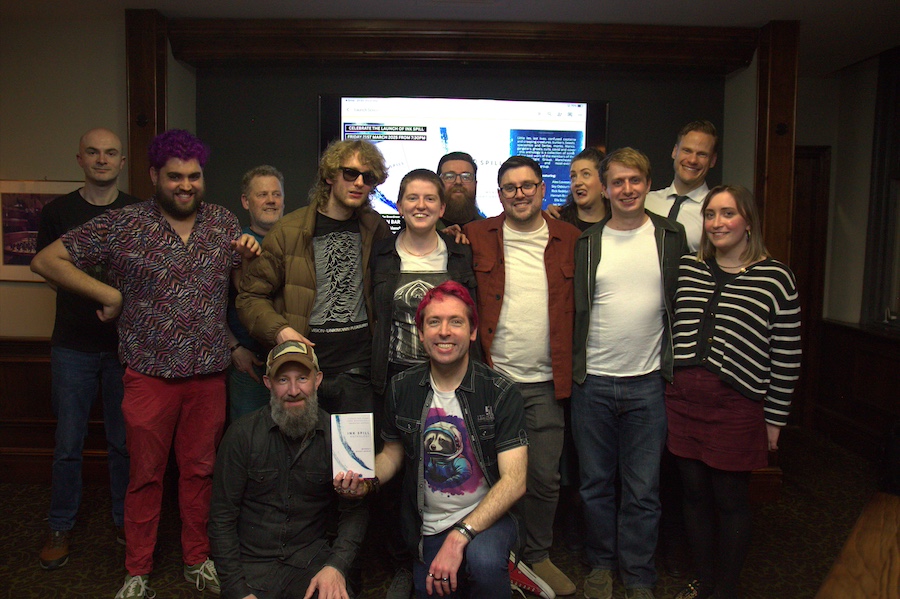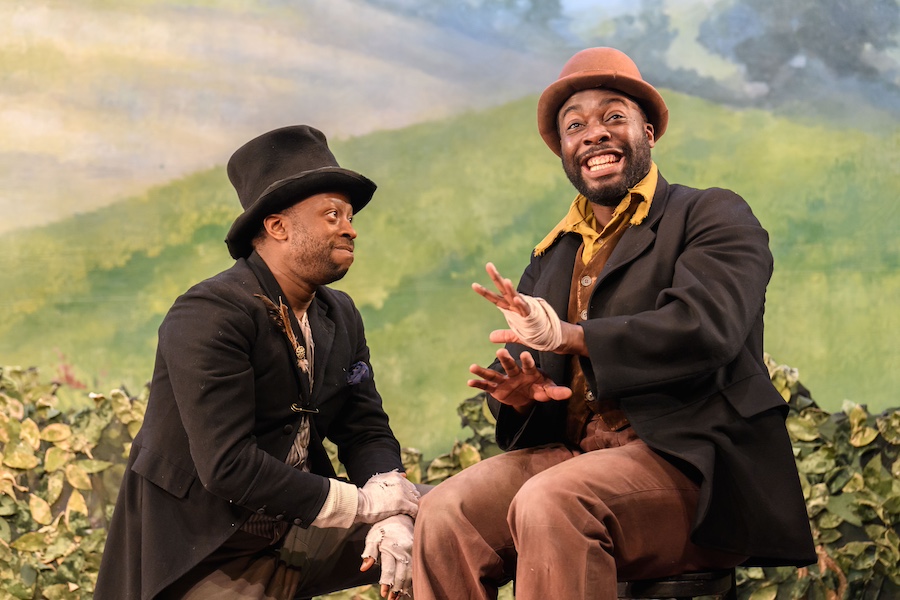No kidding: goat meat is a delicious, ethical and sustainable way to prevent food waste say chefs
- Written by Louise Rhind-Tutt
- Last updated 7 years ago
- City of Manchester, Food & Drink
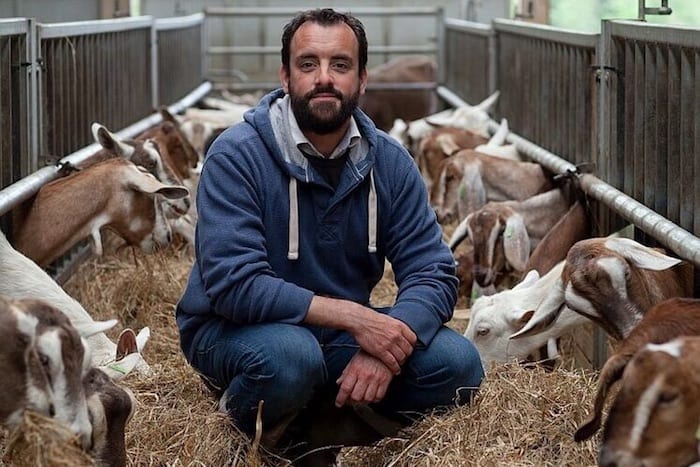
In 2011, while working for Heritage Foods USA in Brooklyn, Erin Fairbanks had an idea. Together with cheesemaker Anne Saxelby, Erin wanted to end the practice of euthanising young male goats the dairy industry had no use for. The pair created Goatober from what they saw as senseless waste.
It started as a month-long celebration of putting goat meat on the menu of New York restaurants. The campaign quickly grew, arriving in the UK in 2016, and now restaurants all across the world participate.
Goatober spreads the word that goat meat is delicious, ethical and sustainable. The hope is to move goat meat into the mainstream, with the goal that all billy goats born into the dairy system, anywhere in the world, will go into the food system rather than being wasted.
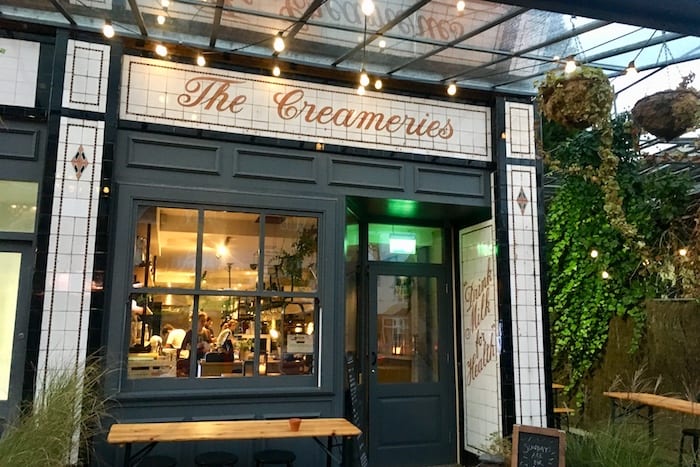
The Creameries in Chorlton was one of the first UK venues to kick off the campaign this year, with a goat-themed menu by James Whelan from Cabrito Goat Meat Ltd, ‘Drunken Butcher‘ Iain Devine and chef Mary-Ellen McTague.
“We took the idea from New York three years ago,” says James, who founded Cabrito after keeping a few goats to solve a land management problem.
He was cooking at River Cottage at the time and a few of the goats ended up on the menu. After seeing how well the kids sold, James thought perhaps there was a market for kid goat meat. He was right.
All Cabrito kids are a by-product of the dairy industry, and would have in the past been euthanized shortly after birth. In a world of dwindling resources and rising food prices, James believes this cannot be justified. Cabrito’s network of farms now produce high quality meat from this previously wasted resource.
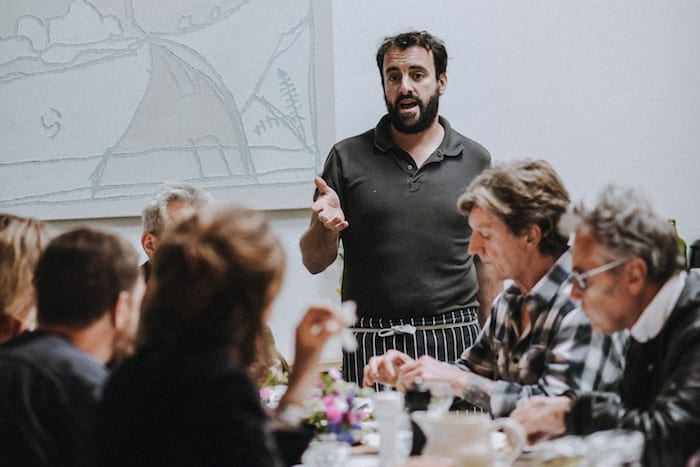
“I’m not the first person to say it, but all our purchasing decisions have consequences,” says James.
“The consequences of buying goat dairy produce – milk and cheese – is billy kids with a grim prognosis. So all we are really trying to do is fill out the circle a bit.
“This year we’ve got events all over Europe, and we are working with the US, too. We are trying to have this month long celebration of goat meat, to get people eating it and restaurants supplying it. It means the billy goats don’t end up either in feedlots or in holes in the ground.”
For their Goatober event in Manchester, the chefs wanted to show the diversity of dishes that can be created from goat meat, using a variety of cooking techniques rather than just slow-cooking, and to demonstrate the wide appeal of the meat.
The meal started with snacks of almonds fried in goat bacon fat with pink peppercorn salt and goat charcuterie, before we got stuck into two lots of goat tacos prepared by Iain.
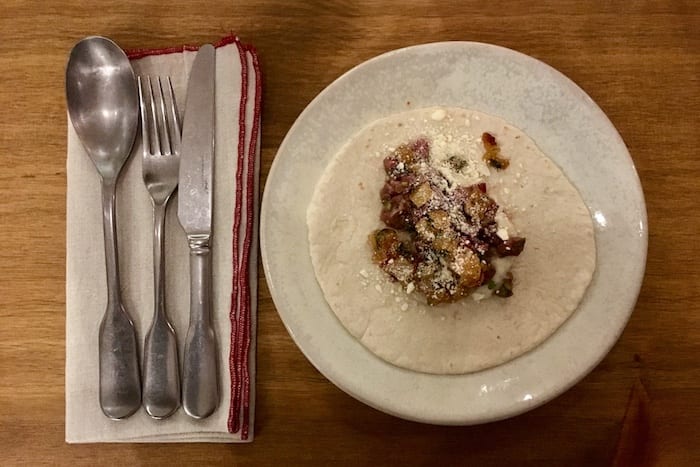
The first taco consisted of slow-cooked goat shoulder with sumac, bean puree and pickled red cabbage, while the second was topped with raw goat tartare with tequila and tabasco, sweet fresh pineapple, tabasco and mint salsa, and frozen sour cream powder.
“My dishes are two of my favourite things,” said Iain. “I either like to slow cook meat, which is one of your tacos, or to keep it really fresh, which is the other.”
While we may be familiar with slow-cooked goat, it was the first time I had tried goat tartare. It was light and clean-tasting, with a punchy hit of heat from the tequila and tabasco. Delicious.
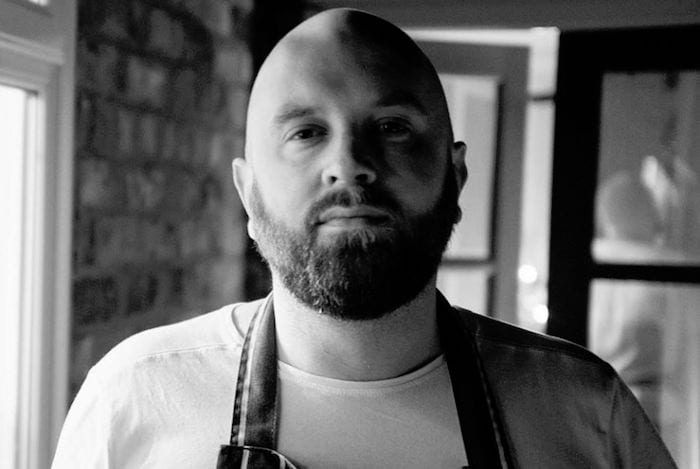
Next up was Mary-Ellen’s course, a rich goat broth and dumplings. Made with goat shoulder, brined, slow cooked and then barbecued, she had also made dumplings with goat suet.
It was followed by Kansas style smoked goat and cornbread, prepared by James.
“The meat’s smoked on a Big Green Egg for about eight hours at 120°, marinated in Tabasco, brown sugar, onion and garlic powder, and brushed as it’s cooked in Kansas sauce – which is basically ketchup, sugar and vinegar with Tabasco and smoked paprika,” he explained.
“So it’s basically the authentic sweet-and-sour taste you expect from barbecuing in the southern states.”
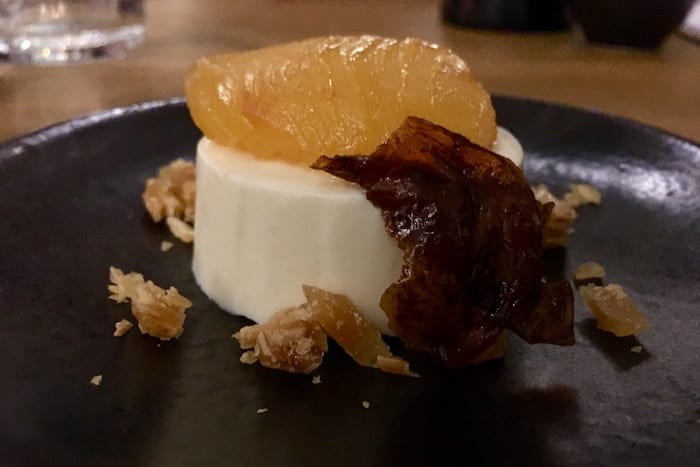
Pudding used goat dairy rather than meat, with a creamy dish made from roast plum, goat milk yoghurt and honey sherbert, bay and almond.
The chefs were all enthusiastic that goat should become part of our regular diets, and the variety of dishes proved its versatility beyond the curries or slow-cooked stews we might expect.
“I adore goat. I did even before I met James,” said Iain. “It’s an utterly delicious meat. And like rose veal, we should eat it. If you want to eat dairy, you should go down that route.”
All the goats for The Creameries dinner were from a farm just outside Skipton, and James believes passionately in supporting local farmers.
“A lot of the work that is going on in France and Germany is about keeping the money in the local community,” he says. “It’s a circular economy thing. So if you’re buying local dairy products and you’re also buying meat, the money is staying in the area.
“It’s a really sustainable message.”
No kidding.
- This article was last updated 7 years ago.
- It was first published on 2 October 2018 and is subject to be updated from time to time. Please refresh or return to see the latest version.
Did we miss something? Let us know: press@ilovemanchester.com
Want to be the first to receive all the latest news stories, what’s on and events from the heart of Manchester? Sign up here.
Manchester is a successful city, but many people suffer. I Love Manchester helps raise awareness and funds to help improve the lives and prospects of people across Greater Manchester – and we can’t do it without your help. So please support us with what you can so we can continue to spread the love. Thank you in advance!
An email you’ll love. Subscribe to our newsletter to get the latest news stories delivered direct to your inbox.
Got a story worth sharing?
What’s the story? We are all ears when it comes to positive news and inspiring stories. You can send story ideas to press@ilovemanchester.com
While we can’t guarantee to publish everything, we will always consider any enquiry or idea that promotes:
- Independent new openings
- Human interest
- Not-for-profit organisations
- Community Interest Companies (CiCs) and projects
- Charities and charitable initiatives
- Affordability and offers saving people over 20%
For anything else, don’t hesitate to get in touch with us about advertorials (from £350+VAT) and advertising opportunities: advertise@ilovemanchester.com


Review: Tambo & Bones at HOME is ‘ambitious, bold, gutsy…. and terrific’

Review: JB Shorts 26 at 53two is ‘a five-star showcase of northern talent’









